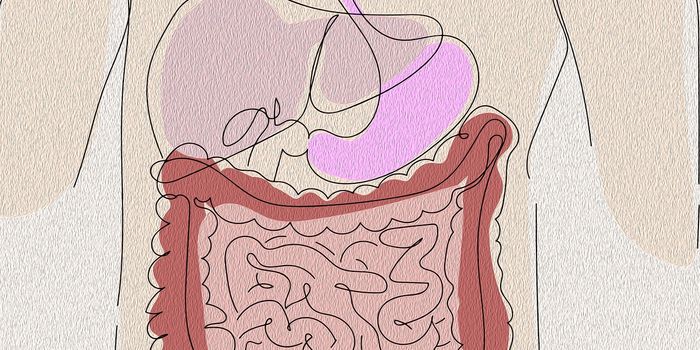It was a puzzling case. The 2.5-year-old French girl had been healthy, but in 2011 she had to be hospitalized because she was struggling to breathe. After testing for a variety of bacterial and viral infections, her doctors diagnosed her illness as severe influenza and began treating her with the drug Tamiflu. The girl lived, but she spent 20 days in the hospital, part of that time on a ventilator to help her breathe.
Now, researchers have figured out why the girl nearly died from a disease that many of us get-and survive-every year. They identified a mutated gene that crippled her defenses against the flu virus. The study suggests that faulty genes could explain other cases of lethal flu.

You might think your last bout of flu was bad, but if it didn't land you in the hospital, doctors don't consider it "severe." The number of people who come down with severe flu each year depends on the strain of influenza virus that's in circulation, but young children and the elderly are usually the most susceptible. "These people would have died before the intensive care era," says physician Jean-Laurent Casanova of Rockefeller University in New York City. Although doctors have gotten better at saving people with severe flu, researchers haven't figured out why most of them became so ill in the first place.
In previous studies, Casanova and colleagues uncovered a number of mutations that impair the immune system's ability to fight off certain infections, such as herpes simplex encephalitis, a type of brain inflammation. To determine if the girl carried any mutations that could explain her illness, the researchers sequenced the portion of her DNA that codes for proteins. They found that both copies of the girl's IRF7 gene were mutated. Her mother and father carried different mutations in this gene. However, both parents also had a normal copy of IRF7, so they were healthy. Because the girl inherited a defective version of the gene from each parent, she had no normal copy.
IRF7 is one of the control switches of our immune system. When viruses infect our cells, it cranks up genes that encode antiviral proteins known as type I and type III interferons. But the mutated versions of IRF7 that the girl carried don't perform their job, the researchers determined. For example, the team tested the girl's dendritic cells, normally a major source of type I and III interferons. In response to flu virus, the activity of type I and type III interferon genes was abnormally low in the patient's dendritic cells, the team reports online today in Science. The researchers also measured the dendritic cells' production of one type I interferon: interferon-α2. Her dendritic cells made none of this antiviral protein.
Casanova and colleagues also wanted to gauge how the mutations affected cells that are attacked by the virus. Flu viruses invade cells that line the lungs, but obtaining those cells from patients is difficult. So the researchers converted some of the girl's skin cells into stem cells and then coaxed them to specialize into lung cells. After exposing these cells and control cells from healthy people to influenza virus, the researchers then tested them for a viral protein. Compared with the control cells, about twice as many of the lung cells were infected with the virus.
"Severe flu is not only a viral illness, it's also a genetic illness," Casanova says. The mutations the researchers identified are extremely rare, so they probably don't account for many cases of severe influenza in children. But the researchers are searching for different mutations in IRF7 and in other related immune system genes that also lower kids' defenses. He adds that the findings suggest treating children who have severe influenza with interferon-α.
"It's a very elegant study," says immunologist Paul Thomas of the St. Jude Children's Research Hospital in Memphis, Tennessee. "They show that just one mutated gene can control susceptibility" to severe flu. Viral immunologist Jacco Boon of Washington University in St. Louis agrees. "It's a great paper for the field" and provides "very convincing evidence" that these mutations left the girl vulnerable to the disease, he says.
The patient the researchers studied is now nearly 7, and she hasn't had another bout of severe flu, thanks to annual flu shots. But her good health poses a mystery. IRF7 provides protection against other viruses, and mice lacking the gene quickly succumb to viral infections. Yet the girl hasn't become seriously ill. "The susceptibility to flu and not these other viruses is intriguing," Boon says. Casanova suggests that other genes might step in for IRF7 to control these infections.
(Source: Science magazine)









